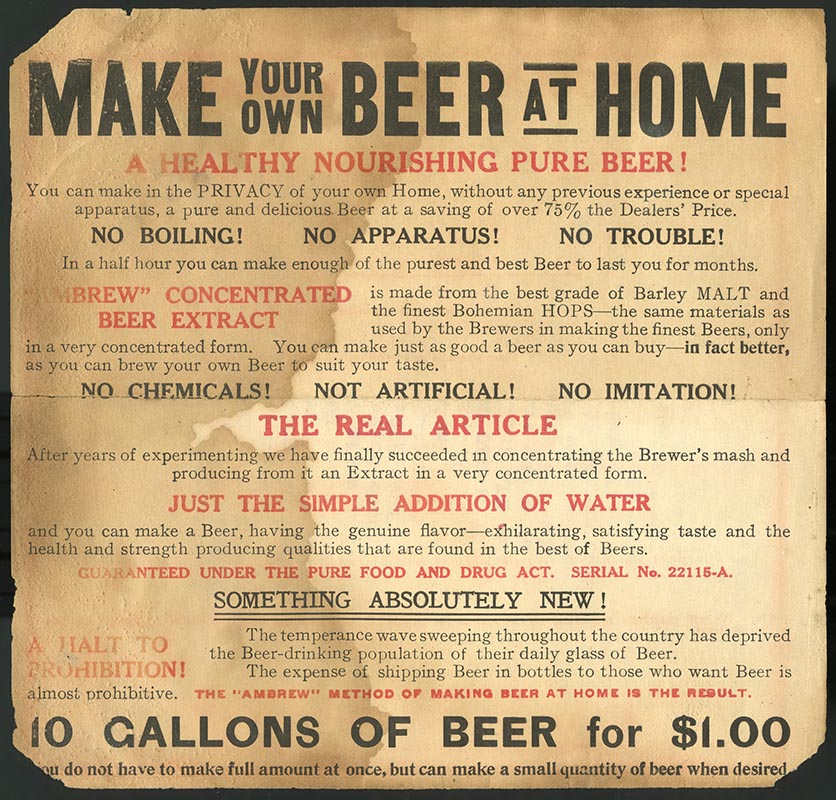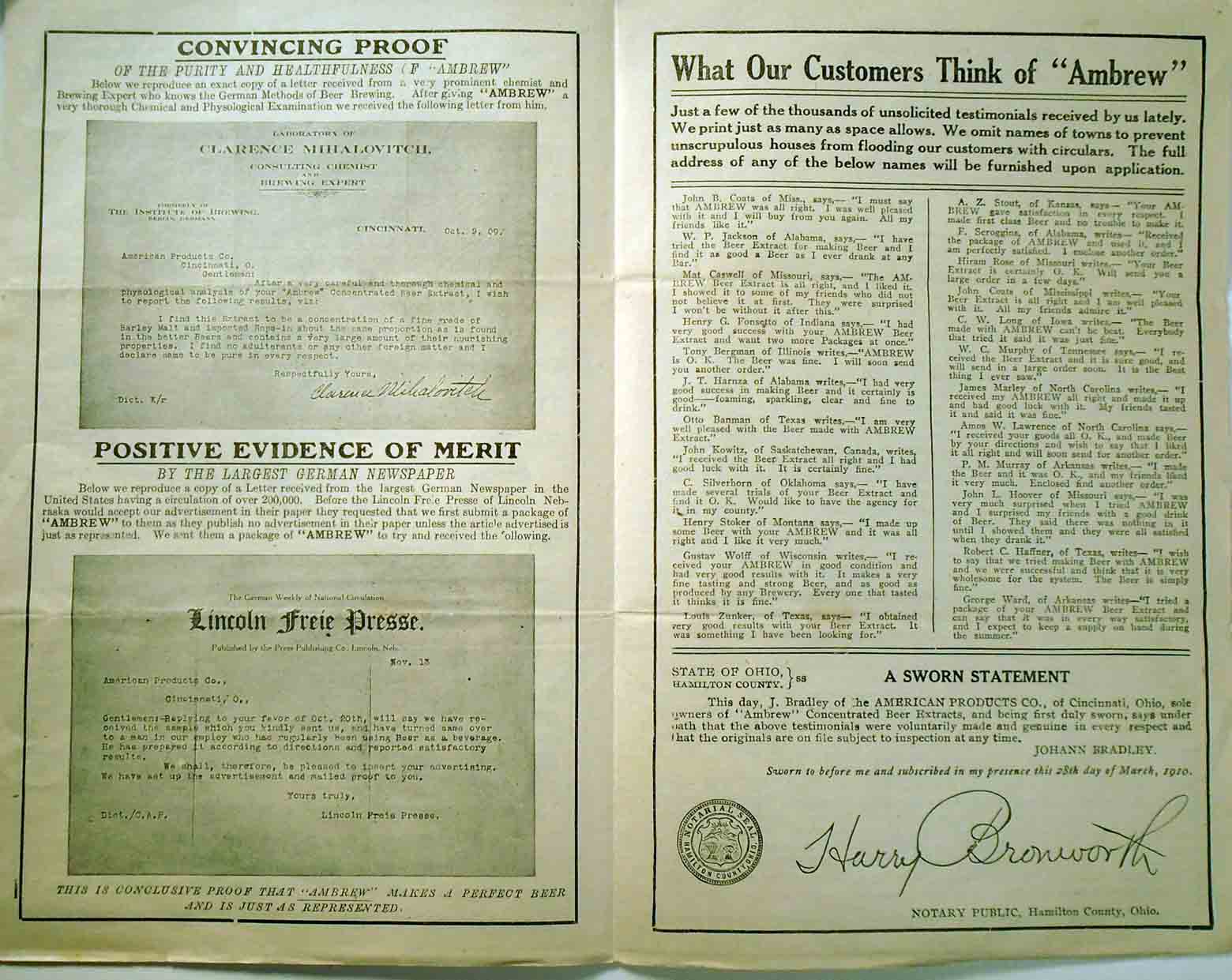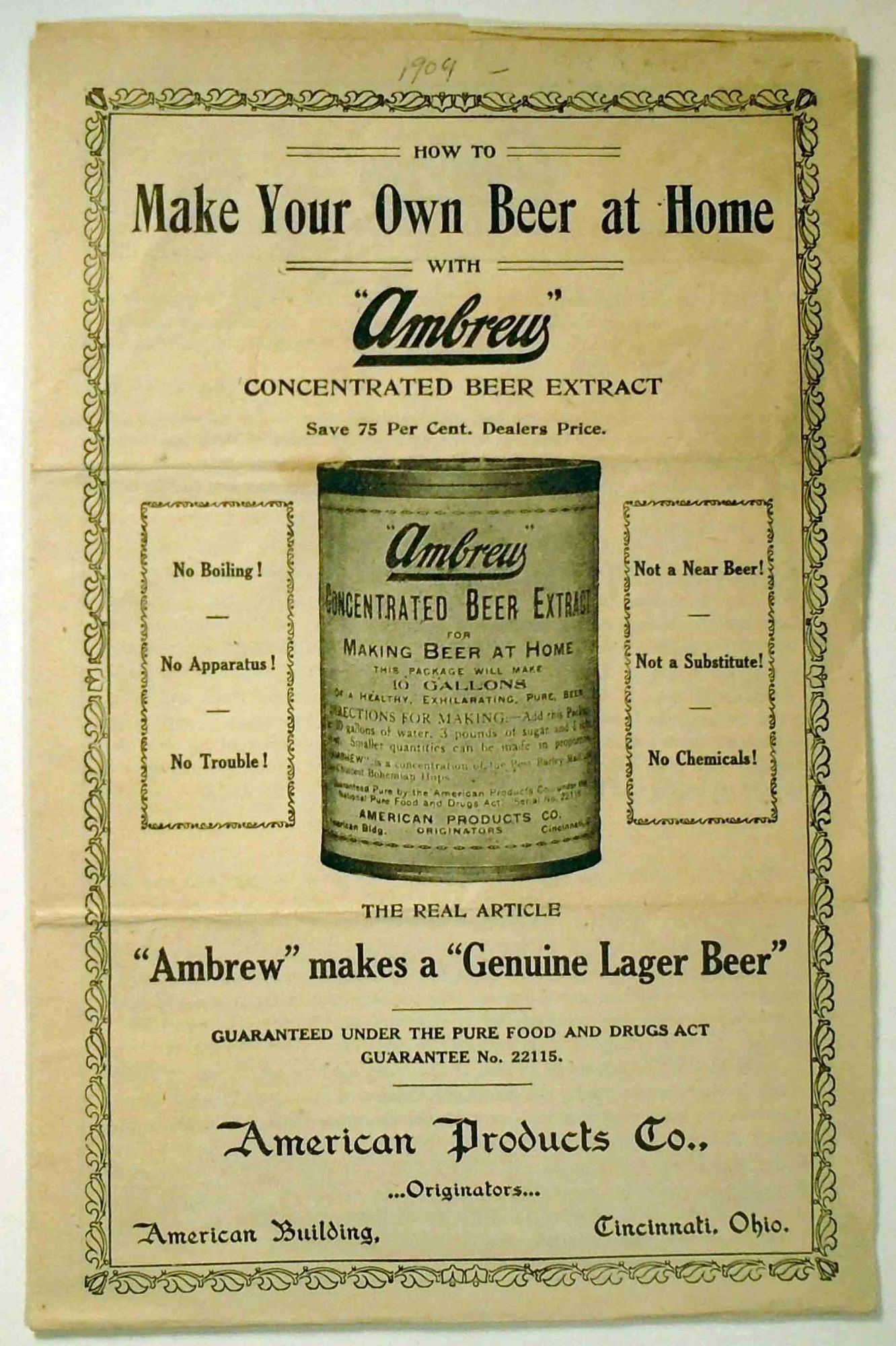You are using an out of date browser. It may not display this or other websites correctly.
You should upgrade or use an alternative browser.
You should upgrade or use an alternative browser.
Overheated wort
- Thread starter Cushing67
- Start date

Help Support Homebrew Talk:
This site may earn a commission from merchant affiliate
links, including eBay, Amazon, and others.
I might be missing something...boiling point of water at sea-level is 212 F, right?
Steveruch
Well-Known Member
185 C is 375 F. Not gonna happen in any boil.185 C or F?
Thank you for you comments. Allow me to clarify.. I absentmindedly allowed my wort to overheat to 185 degrees F. The brewing instructions cautioned not to allow the wort temperature to exceed 170F which may cause tannins to leach into the wort. Could this overheating with possible leaching tannins affect fermentation or overall taste?While doing the final boil on my wort, my propane burner over heated the wort (2.5 gallons) up to 185 degrees. I was still able to hit the target OG (1.076). What effect will excessive heat have on my Dark Belgium Strong?

$27.29 ($13.64 / Count)
$41.99 ($21.00 / Count)
2 Pack 1 Gallon Large Fermentation Jars with 3 Airlocks and 2 SCREW Lids(100% Airtight Heavy Duty Lid w Silicone) - Wide Mouth Glass Jars w Scale Mark - Pickle Jars for Sauerkraut, Sourdough Starter
Qianfenie Direct
![Craft A Brew - Safale S-04 Dry Yeast - Fermentis - English Ale Dry Yeast - For English and American Ales and Hard Apple Ciders - Ingredients for Home Brewing - Beer Making Supplies - [1 Pack]](https://m.media-amazon.com/images/I/41fVGNh6JfL._SL500_.jpg)
$6.95 ($17.38 / Ounce)
$7.47 ($18.68 / Ounce)
Craft A Brew - Safale S-04 Dry Yeast - Fermentis - English Ale Dry Yeast - For English and American Ales and Hard Apple Ciders - Ingredients for Home Brewing - Beer Making Supplies - [1 Pack]
Hobby Homebrew

$7.79 ($7.79 / Count)
Craft A Brew - LalBrew Voss™ - Kveik Ale Yeast - For Craft Lagers - Ingredients for Home Brewing - Beer Making Supplies - (1 Pack)
Craft a Brew

$39.22 ($39.22 / Count)
Brewer's Best Home Brew Beer Ingredient Kit - 5 Gallon (Mexican Cerveza)
Amazon.com

$176.97
1pc Commercial Keg Manifold 2" Tri Clamp,Ball Lock Tapping Head,Pressure Gauge/Adjustable PRV for Kegging,Fermentation Control
hanhanbaihuoxiaoshoudian

$33.95
Five Star - 6022b_ - Star San - 32 Ounce - High Foaming Sanitizer
Bridgeview Beer and Wine Supply

$53.24
1pc Hose Barb/MFL 1.5" Tri Clamp to Ball Lock Post Liquid Gas Homebrew Kegging Fermentation Parts Brewer Hardware SUS304(Liquid Hose Barb)
Guangshui Weilu You Trading Co., Ltd

$10.99 ($31.16 / Ounce)
Hornindal Kveik Yeast for Homebrewing - Mead, Cider, Wine, Beer - 10g Packet - Saccharomyces Cerevisiae - Sold by Shadowhive.com
Shadowhive

$172.35
2 Inch Tri Clamp Keg Manifold With Ball Lock Posts, Pressure Gauge, PRV (0-30 PSI) – Homebrew, Fermentation, Kegging System
wuhanshijiayangzhiyimaoyiyouxiangongsi

$22.00 ($623.23 / Ounce)
AMZLMPKNTW Ball Lock Sample Faucet 30cm Reinforced Silicone Hose Secondary Fermentation Homebrew Kegging joyful
无为中南商贸有限公司

$58.16
HUIZHUGS Brewing Equipment Keg Ball Lock Faucet 30cm Reinforced Silicone Hose Secondary Fermentation Homebrew Kegging Brewing Equipment
xiangshuizhenzhanglingfengshop

$53.24
1pc Hose Barb/MFL 1.5" Tri Clamp to Ball Lock Post Liquid Gas Homebrew Kegging Fermentation Parts Brewer Hardware SUS304(Liquid Hose Barb)
yunchengshiyanhuqucuichendianzishangwuyouxiangongsi
Golddiggie
Well-Known Member
Are you brewing extract with specialty grains? If so, did you leave the grain bag in the pot for the duration?? You should have removed the grain bag once the steep step was completed and then actually BOIL the wort with the hops.
It's been over a decade since I did an extract recipe (only my first two batches were extract with specialty grains) so my memory might not be spot on. BUT, I know I pulled the grain bag once the steep stage was complete.
Also, IIRC, 185 might be a simmer. Sure not a boil (unless at a high elevation).
It's been over a decade since I did an extract recipe (only my first two batches were extract with specialty grains) so my memory might not be spot on. BUT, I know I pulled the grain bag once the steep stage was complete.
Also, IIRC, 185 might be a simmer. Sure not a boil (unless at a high elevation).
These appear to be mashing temps, not boiling. Are you brewing all grain or extract? The boil is the next step and you want it to be 212F or whatever boils at your elevation. What impact your error will have depends somewhat on your grain bill and how long you left it at the elevated temp.
Can you share your recipe and basic steps?
Can you share your recipe and basic steps?
Wables
Well-Known Member
Maybe he is using a steam slayer with enough water to create 13”Hg vacuum?Well if he is boiling at 185 F he is at an elevation of about 14,750 feet above sea level.
Thank you for you comments. Allow me to clarify.. I absentmindedly allowed my wort to overheat to 185 degrees F. The brewing instructions cautioned not to allow the wort temperature to exceed 170F which may cause tannins to leach into the wort. Could this overheating with possible leaching tannins affect fermentation or overall taste?
Please list you entire recipe and process. It sounds like you were doing an extract batch with either steeping grains or a partial mash, but we need to know what was going on for sure to provide good advice. If it was an all grain batch there is more likely to have been a problem.
There are several different ways and processes to make beer, so we need to figure out which one you were doing.
Regardless of what you're doing, 185F is not going to ruin anything. Hopefully you pulled any grains before 170, but if not, you will most likely notice no difference.
Thank you all for your responses. The high temp occurred after I had finished seeping the grains (8 oz. of blended Munich Dark), thrown in the hops, and blended in the liquid malt extracts. The high temp occurred during the final boil just before the cool down/ice bath. Incidentally, the gravity reading after two weeks in fermentation (yesterday) read 1.014, just three points shy of the target range of 1.017 - 1.020. At this point, I am primarily concern about the taste being off due to the high temp.Thank you for you comments. Allow me to clarify.. I absentmindedly allowed my wort to overheat to 185 degrees F. The brewing instructions cautioned not to allow the wort temperature to exceed 170F which may cause tannins to leach into the wort. Could this overheating with possible leaching tannins affect fermentation or overall taste?
Did you taste the gravity sample? That should give you an idea of how it is.
I don't know how you can get to a boil (by definition 212F at sea level) or cool down from a boil without the wort hitting 185F. Still not sure what happened that you're trying to troubleshoot.The high temp occurred during the final boil just before the cool down/ice bath.
Ridenour64
Well-Known Member
- Joined
- Sep 29, 2012
- Messages
- 603
- Reaction score
- 249
ClassicOn second thought… your batch is shot. Bottle it up, send it to me and I’ll dispose of it properly
Sounds like he didn’t pull his steeping grains on his extract batch until 185F. So the concern would be any possible tannin extraction from the 8oz of steeping grains prior to boil.
You are probably just fine, that is a small amount to worry about. Yes there might be some insignificant amount of tannin, but you are well into fermentation at this point, so I wouldn’t worry about it, you will have beer.
You are probably just fine, that is a small amount to worry about. Yes there might be some insignificant amount of tannin, but you are well into fermentation at this point, so I wouldn’t worry about it, you will have beer.
Curtis K.
Active Member
- Joined
- Nov 2, 2018
- Messages
- 26
- Reaction score
- 21
Crushing67 - welcome to the wonderful world of homebrewing!
Were you using a no-boil kit? I know they are common in Australia, including the Williams Warn kits. Most of us use the term wort to refer to the liquid after the grains have been removed (or with extract brewing after the extract has been added), and the the term boil is reserved for when a liquid reaches the vapor point (212°F at at sea level). It sounds like you maybe didn't reach boiling temperatures at all.
The questions are -
• Did you remove the grain from the hot liquor (brewing water) before you added the extract? This will tell us if you were actually steeping grain in wort rather than in hot liquor. This is not a problem in and of itself, but there is no advantage and you would have lost some of your malt sugars when you later removed the grain. However, you hit your OG so no problem there.
• Did you hit 185°F while the grain was still steeping in the hot liquor (or wort if your grain was still in the kettle with the extract)? Not a disaster since 185°F is not that high and I expect it was short duration, but you may have extracted some tannins from the grain that will lead to some astringency in your beer (wet cardboard flavor along with unusually dry mouthfeel).
Since very few folks on this board us a no-boil (AKA raw) process, most of us want to boil our wort (without any grain) for about an hour - it concentrates the sugar a bit (increasing OG), helps develop flavor and color, drives off DMS (Dimethyl Sulfide an organic sulfur-containing molecule with a vapor point of 98.6°F), and most importantly it isomerizes the alpha acids in the hops to develop bitterness.
Some extract kits include extract that is already hopped - so it has isomerized alpha acids in the extract so you can still get bitterness without boiling if you use that kind of extract.
Were you using a no-boil kit? I know they are common in Australia, including the Williams Warn kits. Most of us use the term wort to refer to the liquid after the grains have been removed (or with extract brewing after the extract has been added), and the the term boil is reserved for when a liquid reaches the vapor point (212°F at at sea level). It sounds like you maybe didn't reach boiling temperatures at all.
The questions are -
• Did you remove the grain from the hot liquor (brewing water) before you added the extract? This will tell us if you were actually steeping grain in wort rather than in hot liquor. This is not a problem in and of itself, but there is no advantage and you would have lost some of your malt sugars when you later removed the grain. However, you hit your OG so no problem there.
• Did you hit 185°F while the grain was still steeping in the hot liquor (or wort if your grain was still in the kettle with the extract)? Not a disaster since 185°F is not that high and I expect it was short duration, but you may have extracted some tannins from the grain that will lead to some astringency in your beer (wet cardboard flavor along with unusually dry mouthfeel).
Since very few folks on this board us a no-boil (AKA raw) process, most of us want to boil our wort (without any grain) for about an hour - it concentrates the sugar a bit (increasing OG), helps develop flavor and color, drives off DMS (Dimethyl Sulfide an organic sulfur-containing molecule with a vapor point of 98.6°F), and most importantly it isomerizes the alpha acids in the hops to develop bitterness.
Some extract kits include extract that is already hopped - so it has isomerized alpha acids in the extract so you can still get bitterness without boiling if you use that kind of extract.
Thank you all for your responses. The high temp occurred after I had finished seeping the grains (8 oz. of blended Munich Dark), thrown in the hops, and blended in the liquid malt extracts. The high temp occurred during the final boil just before the cool down/ice bath. Incidentally, the gravity reading after two weeks in fermentation (yesterday) read 1.014, just three points shy of the target range of 1.017 - 1.020. At this point, I am primarily concern about the taste being off due to the high temp.
I still can't figure out your process. Please describe all of your steps in detail one by one. This makes no sense.
It sounds like you steeped grains, added hops and malt extract, boiled it, then cooled it down, then raised the temp again??? then put it in an ice bath?
hotbeer
Opinionated Newb
- Joined
- Mar 10, 2021
- Messages
- 3,090
- Reaction score
- 2,809
Brewing is several phases. Different temperatures for different phases.
The 170F you mention will be a never exceed temp for mashing and probably steeping too. But prior to putting beer in the fermenter, you want to boil it. And that will be at whatever temp your elevation requires for a mostly water substance to boil. Way higher than 170°F.
So probably you are using the wrong terms or just not realizing the instructions have moved from one process phase to the other and that temp restrictions of the previous phase no longer apply.
The 170F you mention will be a never exceed temp for mashing and probably steeping too. But prior to putting beer in the fermenter, you want to boil it. And that will be at whatever temp your elevation requires for a mostly water substance to boil. Way higher than 170°F.
So probably you are using the wrong terms or just not realizing the instructions have moved from one process phase to the other and that temp restrictions of the previous phase no longer apply.
- Joined
- Nov 26, 2013
- Messages
- 9,936
- Reaction score
- 24,139
did you boil 60 minutes?
I'm almost reading you as saying you steeped your grains, pulled them at 185F and cooled everything down.
Was there a boil?
I'm almost reading you as saying you steeped your grains, pulled them at 185F and cooled everything down.
Was there a boil?
If you are doing extract recipes (& especially prehopped extract), you may not need to boil.did you boil 60 minutes?
I'm almost reading you as saying you steeped your grains, pulled them at 185F and cooled everything down.
Was there a boil?
What could possibly go wrong?


hotbeer
Opinionated Newb
- Joined
- Mar 10, 2021
- Messages
- 3,090
- Reaction score
- 2,809
Well that wouldn't be complete without the testimonials.....What could possibly go wrong?
View attachment 746250



Some of the internet stuff we hate today pales in comparison to what went on well over a 100 years ago.
Last edited:
Similar threads
- Replies
- 7
- Views
- 1K
- Replies
- 45
- Views
- 4K
- Replies
- 5
- Views
- 2K
- Replies
- 5
- Views
- 774
Colorado
Nano Homebrew System (10-15 Gallons)
- Replies
- 0
- Views
- 2K



































